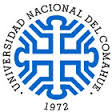Dedicaremos este artículo a la memoria de Jorge Gelman, uno de los más reconocidos historiadores argentinos vinculados a los estudios económicos, con especial atención a su producción científica, tanto a la inicialmente vinculada con los temas agrarios de la pampa húmeda, como a otra más reciente destinada al estudio del crecimiento y la desigualdad en distintas regiones del país a lo largo del siglo XIX. Con esa intención, este trabajo tiene entonces un doble carácter: es por un lado una síntesis sobre los efectos de la crisis de paradigmas de la segunda posguerra en la historiografía económica argentina, a la vez que un estado de la cuestión sobre sus efectos a largo plazo, con especial atención a los estudios agrarios en los últimos años del siglo XX y primeros del actual. En ese marco, se analizarán las renovaciones producidas en distintos ámbitos de la disciplina, entre las cuales los trabajos más recientes del propio Gelman y sus colegas de investigación son parte ineludible. Los estudios sobre la desigualdad están, sin duda, entre los más novedosos y atrayentes de los últimos tiempos, no solo porque permiten un acercamiento conceptual y metodológico a las condiciones de vida y a la concentración del crecimiento y la riqueza, tanto en sus aspectos regionales como sociales, sino también porque pueden contribuir a dar respuestas desde la historia al incremento de la pobreza en la Argentina y en otros países de América Latina y del mundo.
We will dedicate this article to the memory of Jorge Gelman, one of the most renowned Argentine historians linked to economic studies, with special attention to his scientific production, both initially linked to the agrarian issues of the humidpampas, as well as a more recent destined to the study of growth and inequality in different regions of the country throughout the nineteenth century. With this intention, this work then has a double character: it is, on the one hand, a synthesis on the effects of the crisis of paradigms of the second postwar period in Argentine economic historiography, as well as a state of the question on its long-term effects, with special attention to agricultural studies, in the last years of the 20th century and the beginning of the present one. In this framework, the renovations produced in different fields of the discipline will be analyzed, among which the most recent works by Gelman himself and his research colleagues are an unavoidable part. Studies on inequalityare undoubtedly among the most innovative and attractive in recent times, not only because they allow a conceptual and methodological approach to living conditions and the concentration of growth and wealth, both in its regional and social aspects, but also because they can contribute to providing answers from history to the increase in poverty in Argentina and in other countries of Latin America and the world.


